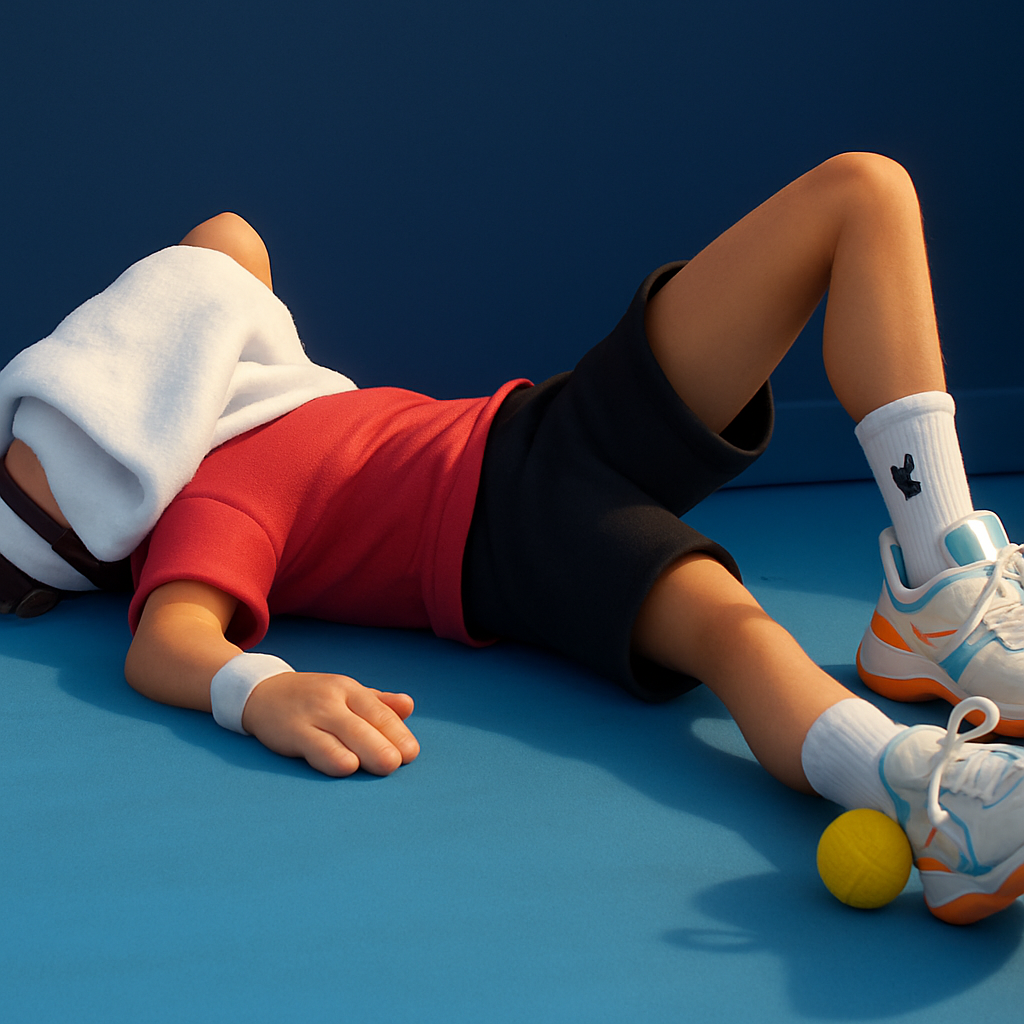CINCINNATI — French tennis star Arthur Rinderknech collapsed on court during his second-round match at the Western & Southern Open on Wednesday, sparking immediate concern as medical staff rushed to his aid in distressing scenes at the ATP Masters 1000 event.
The world No. 73 was trailing 4-6, 0-3 against Australia’s Alexei Popyrin when he suddenly fell to the ground during a changeover, appearing disoriented before slumping backward onto the court. Tournament officials halted play as medics attended to Rinderknech, who received oxygen and was eventually helped into a wheelchair before being transported off-site for further evaluation.
Scenes of Concern on Court
Eyewitnesses described a tense atmosphere as Rinderknech, 28, struggled to regain his footing after collapsing. "He looked completely out of it—his eyes were glazed over, and he couldn’t sit up without support," said one spectator seated near the court. The match, played in humid 88°F (31°C) conditions, was officially ruled a retirement, advancing Popyrin to the next round.
Tournament organizers later confirmed Rinderknech had suffered from "severe dehydration and heat exhaustion," though initial fears of a cardiac episode were ruled out. The Frenchman was treated at an on-site medical facility before being released, with his team stating he was "stable and recovering."
A Growing Concern in Tennis
Rinderknech’s collapse reignited discussions about player safety in extreme weather, particularly during the North American summer hardcourt swing. The incident followed similar episodes in recent years, including:
- Daniil Medvedev’s visible distress in 100°F (38°C) heat at the 2022 Australian Open
- Victoria Azarenka’s mid-match medical timeout for dizziness at the 2023 Miami Open
- Frances Tiafoe requiring IV fluids after a 2021 US Open match
The ATP and WTA have implemented heat rules, including extended breaks and cooling measures, but critics argue enforcement remains inconsistent. "When players are collapsing, it’s clear the protocols aren’t enough," tweeted retired pro Nicole Gibbs.
Player Reactions
Popyrin, visibly shaken post-match, praised the medical team’s response: "Arthur’s a friend. Seeing him like that was terrifying. The doctors acted so fast—thank God they were there." Other players, including Stefanos Tsitsipas, called for stricter heat policies, with the Greek star noting, "We’re athletes, not gladiators."
Medical Perspective
Dr. Rebecca Jones, a sports physician unaffiliated with the event, explained that heat-related illnesses can escalate rapidly: "Dehydration impairs thermoregulation. When core temperature spikes, confusion and loss of coordination are warning signs of heat stroke, which is life-threatening." She emphasized that acclimatization and preemptive hydration are critical but often overlooked.
Rinderknech, who had played a grueling three-setter two days prior, was reportedly drinking fluids during the match. However, sources close to his team revealed he’d been battling a mild stomach bug earlier in the week, potentially exacerbating his vulnerability.
What’s Next for Rinderknech?
As of Thursday morning, the French Tennis Federation confirmed Rinderknech had withdrawn from doubles and was "under close medical supervision." His participation in next week’s US Open remains uncertain, though his team stressed recovery was the priority.
The ATP released a statement reaffirming its commitment to player welfare: "We continually review our extreme weather policies in consultation with medical experts. Player health is non-negotiable." Meanwhile, fans flooded social media with support, using the hashtag #StayStrongArthur.
Rinderknech’s collapse serves as a stark reminder of tennis’ physical demands. As climate change intensifies, the sport faces mounting pressure to adapt—before another player pays the price.

